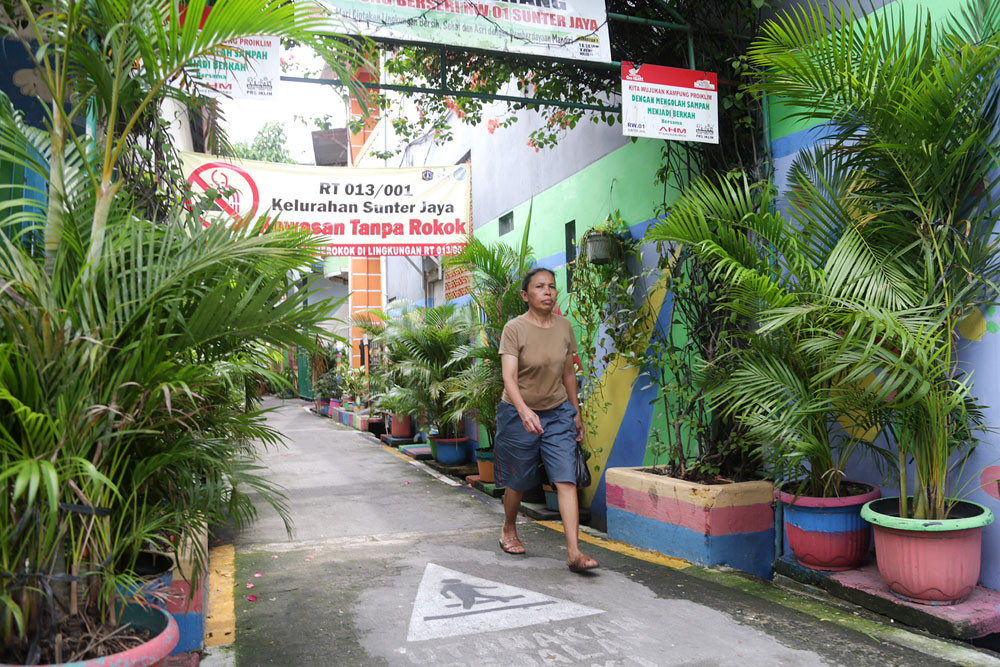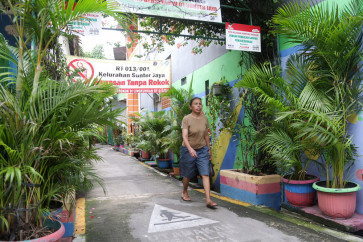Popular Reads
Top Results
Can't find what you're looking for?
View all search resultsPopular Reads
Top Results
Can't find what you're looking for?
View all search resultsToward Indonesia’s energy transition
Change text size
Gift Premium Articles
to Anyone
 Green neighborhood: Community unit 01 in Sunter Jaya, Tanjung Priok, North Jakarta, is one of the 83 neighborhoods in the capital that have been recognized by the Environment and Forestry Ministry’s climate-friendly neighborhood program for their commitment to mitigating the effects of greenhouse gas emissions. (The Jakarta Post/Wendra Ajistyatama)
Green neighborhood: Community unit 01 in Sunter Jaya, Tanjung Priok, North Jakarta, is one of the 83 neighborhoods in the capital that have been recognized by the Environment and Forestry Ministry’s climate-friendly neighborhood program for their commitment to mitigating the effects of greenhouse gas emissions. (The Jakarta Post/Wendra Ajistyatama)
I
n her recent visit to Indonesia, the former secretary-general of the United Nations climate change negotiations, Christiana Figueres, a global key player in climate change, coined a new term that could describe the best prescription for energy transition in the country: “Gragent” — meaning gradual but urgent.
Figueres was referring to the way Indonesia needs to address its greenhouse gas (GHG) emission cut in the energy sector. The UN Development Program (UNDP) embraces the Gragent term, given the fact that more than half of Indonesia’s current energy is supplied by fossil fuel.
The transition toward more renewable energy is a matter of urgency since Indonesia contributes significantly to global GHG emissions and climate change from burning fossil fuel. At the same time, a gradual transition is pivotal, since an abrupt shift may cause social and economic instability. Moreover, Indonesia has ratified the Paris Agreement and committed in its Nationally Determined Contribution (NDC) to reduce by 2030 at least 11 percent of GHG emission from energy sector compared to business as usual level of emissions.
An increase in renewable energy use and reduction in GHG emissions will contribute to the Sustainable Development Goals (SDGs) achievement particularly Goal 7 (Affordable and Green Energy) and 13 (Climate Action).
The UNDP has proposed three innovative and achievable proposals for Indonesia’s transition towards renewable energy. All three ideas have been formulated and pilot tested.
First proposal — private sector investment in electrification of remote areas. In Indonesia, at least 9,028 villages have not been or are currently inadequately electrified. Most of these are settlements in remote areas and small islands that have not yet been reached by the grid of state utility company PLN.
Despite its monopoly on power provision and the electricity business area in Indonesia, PLN does not consider these remote areas as being economically profitable. At the same time, the current state budget will not allow for a timely and massive provision of electricity for those underserved villages.

















